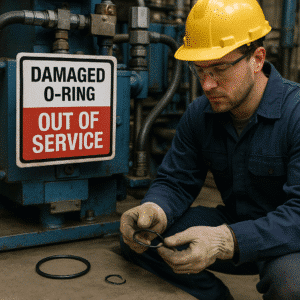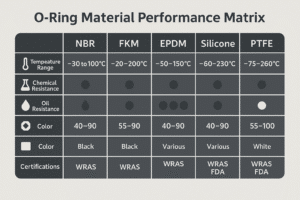Seeing oil under your car or hearing a humming rear axle? A rear differential seal leak might be the hidden culprit—delay fixing it, and it may cost you thousands.
A rear differential seal leak can cause oil loss, overheating, and irreversible gear damage. Identifying it early and replacing the seal prevents costly failures and extends vehicle life.
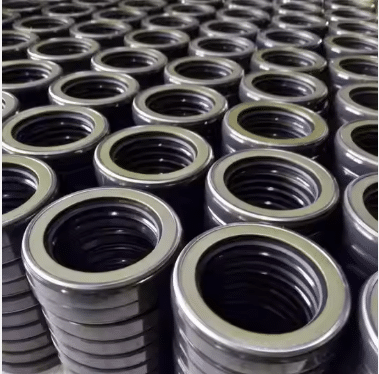
Rear differentials are critical for power transfer and vehicle stability. When their seals fail, the consequences ripple across the entire drivetrain. This guide explains how to detect, fix, and prevent these leaks effectively.
What are the symptoms of a rear differential seal leak?
Oil puddles on your driveway, gear whining, or axle vibration often signal a seal problem.
The most common symptoms of a leaking rear differential seal include oil dripping near the pinion, humming noises during acceleration, gear misalignment, and noticeable fluid loss on the housing.
What are the top warning signs of a leaking rear diff seal?
| Symptom | Probable Cause | Urgency |
|---|---|---|
| Fluid stains behind rear axle | Seal lip rupture | 🔴 High |
| Whining sound at speed | Oil loss causing gear wear | 🔴 High |
| Diff housing soaked in oil | Internal pressure or heat failure | 🔴 High |
| Smell of burnt oil | Oil on exhaust or brakes | 🟡 Medium |
| Vehicle vibration | Gear misalignment or low fluid | 🟡 Medium |
One of our Canadian truck customers noticed minor axle vibration but ignored it. Within 3 weeks, it turned into a complete diff rebuild costing over $1,200. Catching it early matters.
Why does the rear differential seal start leaking?
You might be wondering why this small component fails so easily—there are clear mechanical reasons.
Rear differential seal leaks are caused by aging rubber, high operating temperatures, contaminated fluids, or improper installation. Use of subpar aftermarket seals also increases failure risk.
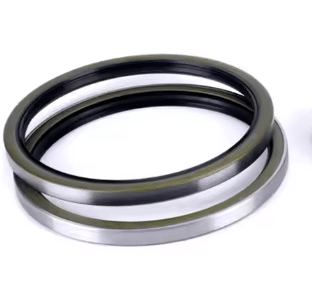
What causes rear diff seal leaks and how can you avoid them?
| Cause | Explanation | Prevention |
|---|---|---|
| Aged rubber seals | Harden over time | Replace every 60,000 km |
| High heat (e.g. towing) | Swells/damages seal lips | Use FKM seals |
| Poor installation | Improper yoke alignment | Hire certified technician |
| Fluid contamination | Dirt/debris from off-road | Change fluid regularly |
| Inferior seal quality | Substandard rubber blends | Use OEM or tested replacements |
During my visit to a fleet garage in Dubai, I saw dozens of vehicles using incompatible oil seals. Switching to our TG4 double-lip oil seals cut failure rates by 60% within 3 months.
How do I fix a leaking rear differential seal?
This is the most searched question—and rightfully so. A seal replacement sounds easy, but is it?
Fixing a rear diff seal involves removing the driveshaft, replacing the seal with precision, and refilling with the correct gear oil. DIY is possible but not ideal for first-timers.

How do you replace a leaking rear differential seal step by step?
- Lift vehicle with jack stands
- Drain differential fluid
- Remove driveshaft and pinion flange
- Extract old seal using puller
- Press new seal with proper tool
- Reinstall all parts
- Fill diff with 75W-90 or 80W-90 oil
For heavy-use applications like off-road or delivery vehicles, I recommend using a TG4 double-lip seal to extend lifespan under harsh conditions.
How much does it cost to replace a rear differential seal?
Costs vary—but the earlier you act, the cheaper it stays.
DIY replacements can cost as low as $40–$70. Shop repairs usually range from $250–$500. Ignoring the leak can escalate to full diff replacements ($1,000+).
What is the cost breakdown for fixing a rear differential seal leak?
| Cost Item | DIY | Mechanic |
|---|---|---|
| Seal | $10–$25 | Included |
| Gear Oil | $20–$40 | $30–$60 |
| Tools | $20–$100 | N/A |
| Labor | $0 | $150–$300 |
| Total | $50–$150 | $250–$500 |
Fleet buyers often choose bulk ordering from trusted suppliers. Here’s how custom seal sourcing helped one client cut replacement costs by 35%.
When does a rear differential seal leak become dangerous?
If left unresolved, even a minor leak can snowball into catastrophic failure.
A leak becomes dangerous when oil loss reaches a level where gears grind or overheat. Once metal-to-metal contact begins, the repair cost multiplies fast.
How long can you drive with a leaking rear differential seal?
| Leak Status | Driving Risk | Suggested Action |
|---|---|---|
| Occasional drip | Low | Monitor weekly |
| Weekly top-up needed | Moderate | Schedule repair |
| Burning smell or vibration | High | Replace ASAP |
| Visible oil on brakes | Severe | Unsafe to drive |
We always advise replacing the seal if you need to refill fluid more than twice a month. Inconsistent oil levels also wear out internal bearings faster.
What type of seal is best for preventing rear diff leaks?
Not all oil seals are created equal—choose by material and usage type.
For typical use, NBR seals suffice. For heavy loads, high temp, or long-distance hauling, FKM or double-lip designs offer superior protection.
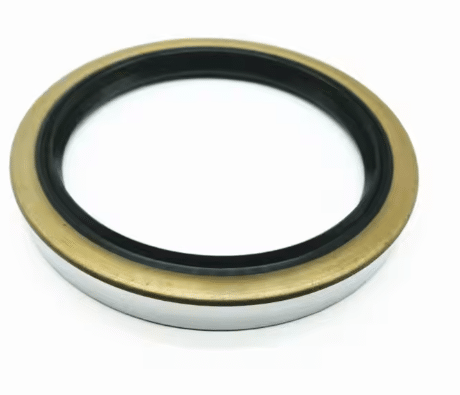
Which oil seal material should I choose for rear differential sealing?
| Material | Ideal Use | Limitation |
|---|---|---|
| NBR | Standard highway driving | Limited heat tolerance |
| FKM | High temp, chemical loads | Higher price |
| Silicone | Flexible, food-grade | Not for heavy wear |
| PTFE | Extreme pressure, high RPM | Less sealing compression |
At Hengoseal, our clients often opt for FKM O-Rings for long-haul trucks and TG4 dual-lip oil seals for rugged performance.
Conclusion
Rear differential seal leaks are manageable when addressed early. Prevention, quality seals, and regular checks are key to avoiding costly repairs.
Protect your drivetrain—upgrade your seals today
Whether you're a fleet manager or individual driver, don’t wait for leaks to cause breakdowns. Contact us for OEM-grade differential and pinion seals now.
📧 Email: [email protected]
📲 WhatsApp: +86 17622979498
Related topic
How to Install an Oil Seal Without Leaks: Step-by-Step Guide
Oil Seal Cross Reference Chart: How to Find the Right Replacement?
High-Quality Oil Seal: Why Does Precision Matter in Hydraulic Systems?

